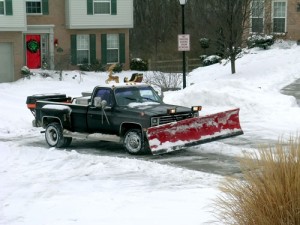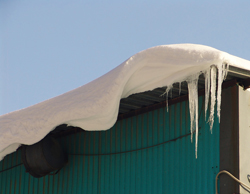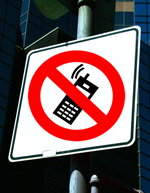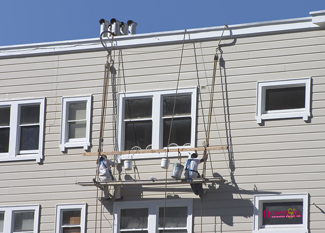Absolute Pollution Exclusion: What It Means for Your Insurance Coverage as a business owner or homeowner.
Insurance is a way to mitigate risk. People take out insurance for their homes, vehicles and health. Businesses also invest in insurance coverage to protect their assets. However, not everything is covered by your insurance policy. One area of exclusion to keep in mind for your Massachusetts or Connecticut business is absolute pollution exclusion.
Understanding Absolute Pollution Exclusion
Most businesses take out a commercial liability insurance policy. While this policy will have some general coverage, there are various caveats. These are known as clauses, and these clauses can have a significant impact on the state of your coverage. This is the reality of the absolute pollution exclusion. When your policy includes an absolute pollution exclusion, then your business is not protected against pollution that stems from normal business operations. These exclusions have been commonly included as a standard part of general liability insurance since the mid 1980’s.
The History Behind the Absolute Pollution Exclusion
The absolute pollution exclusion has strong historical roots to explain its existence. Its development stems from a famous case involving the Montrose Chemical Corporation of California. This company made a chemical known as DDT. During the production of DDT, the waste was released into the Pacific Ocean. Inevitably, this waste led to widespread pollution. This practice endured for decades until the federal government finally demanded reparations. Montrose was required to pay for the cleanup.
After the federal government took action, the legal and financial fallout continued. With such widespread damage, more and more insurance companies were pursued to cover reparations from the Montrose Corporations actions and inactions. In court, success was mixed, and insurance companies were forced to cover the cleanup costs. At this point, insurance companies found the cleanup too expensive and a threat to their own solvency. To prevent future exposure to these costs, these companies stopped providing protection against pollution in their standard policies.
Details of Absolute Pollution Exclusion
It is important to note that this exclusion is not comprehensive. Most liability policies still include some coverage for incidental pollution events. This means that if the pollution stems from events that are not, in any way, related to your normal business operations, you will still be able to make a claim. There are some policies however that have what is called “a total pollution exclusion”. These policies may not even provide liability coverage after any pollution event.
Despite the legal framework of the absolute pollution exclusion, its application is still open to debate in the courts. When there is a disputed claim, the courts are often the ones to decide what counts as pollution. In general, insurance companies do not want to cover issues related to pollution like lead paint, asbestos, fuel spills and more. Oil tanks that leak may not be completely covered under these exclusionary clauses. Some coverage may exist for migratory damage away from your premises. Specific pollution policies or endorsements can be purchased for an additional premium. It is important that your insurance company understands what your own specific needs so that you policy is prepared to cover those needs should an event occur.
Common Exceptions
As previously stated, while the exclusion does limit coverage in many cases, your Connecticut and Massachusetts business will still have some protection. For example, the absolute pollution exclusion does not exclude protection when bodily injury is sustained by smoke, fumes, vapor or soot caused by heating or cooling appliances. You will also be able to make a claim when a fire causes damage or injury to insured contractors. There may also be protection when fuel or other fluids leak out of equipment at an off-site location. Other instances may also exist. The important thing to keep in mind is that it is essential that your insurance company is thoroughly aware of the nature of your business operation so the most comprehensive coverage are offered for your consideration.
Oil Tanks and Leaks
Of particular concern for many is coverage for oil tanks in the event they leak. Because oil is generally classified as a pollutant, clean up for its discharge, seepage or local migration most likely will be excluded under your policy. The issue of coverage for these events and claims usually comes down to the classification of fuel oil as a pollutant. These cases are very very hard to win because the exclusions and definitions have , for the most part, already been determined by the courts. It is not too general a statement to make that all businesses need to be diligent about taking proactive, protective measures to limit their own exposure to this potentially catastrophic exposure. Additionally, even if the potential for an occurrence may be small the scope and severity of these claims is so high it may often advisable to seek out specific pollution coverage.
Oil Tanks in Owner Occupied Residential Property
Because of legislative mandates Coverage is more readily available for oil that leaks from tanks in these settings. Most carriers offer various limits of coverage, for an additional premium, on the HO-3 Homeowners Policy. Check with your insurance agent to see if this optional coverage is right for you.
Why a Contractor Needs Business Insurance
If you are a contractor unexpected problems could destroy your profitability. Contractor insurance is an important part of the puzzle you won’t want to ignore.
Some people feel that they don’t need insurance and never buy it. That mistake can cost them everything. Having contractor insurance will safeguard your business and protect you from the unthinkable. Putting your worries to rest. You can have confidence while you work, knowing you are in good hands.
Cover Liabilities
At work, you always put in your best effort, so that you can provide your customers with impressive results. However, you can’t control everything. Before you know it, problems can arise. Damaging a client’s property by accident can cost you a lot of money. If you make a mistake that causes someone to get injured, you will have an even bigger problem. Getting general liability insurance will work wonders when your goal is to avoid unexpected expenses. The insurance will cover most liability issues you will encounter, setting your mind at ease.
Protect Employees
In order to help get jobs done before the deadlines expire, many contractors hire teams to work under them. Having workers’ compensation will protect you from being sued if someone injured on the job. Opting for coverage, can prevent you from facing lawsuits and other legal actions involving injured employees. Never let anyone work for you, until you have the right workers’ compensation policy that fits your situation and needs.
Get More Business
A lot of prospective clients will look into your background before they feel comfortable hiring you. If they discover that you don’t have enough insurance to cover liability issues, or protect your team, they will probably go elsewhere, causing you to leave money on the table. Trouble finding work is what you will get if you don’t have adequate coverage. You must avoid that trap at all costs. When you get the correct insurance plan for your business, your customers will know that you care about them and their property, compelling them to hire you.
Final Thoughts
Having general liability insurance and other coverage plans is important if you want to thrive over the long run. In addition to protecting you from lawsuits and the unthinkable, the right policy will also attract customers and help you get even more business. Buying an adequate insurance plan is a great way to manage problems, and address concerns before they spiral out of control. You won’t need to pay much out of your pocket, either. When you consider the long-term impact of each choice, you can see that opting for insurance is a wise move.
Dan explains reasons to choose a local insurance agency
Make sure your “Plow Guy” is Properly Insured
 We live in snow country and chances are you work hard to make sure that your property is safe and protected during those difficult winter months. This includes making sure that you have access to the services of contractors that can do jobs such as managing the snow and ice levels on your property especially on the roof, driveway and sidewalks.
We live in snow country and chances are you work hard to make sure that your property is safe and protected during those difficult winter months. This includes making sure that you have access to the services of contractors that can do jobs such as managing the snow and ice levels on your property especially on the roof, driveway and sidewalks.
How to Choose a Snow Removal Service
You want to make sure that you can rely on your contractor to show up and do the tasks related to snow removal effectively. The contractor should have access to the necessary equipment and tools to do the job right. Additionally, the contractor should have the required business licenses and permits. Insurance is an important component of the contractor’s business credentials. Snow removal services may not be rocket science, but the tasks can potentially damage property and cause harm to occupants and to workers.
Insurance Coverage for Snow Removal Contractors
As a property owner, you maintain liability insurance to protect your assets from law suits in the event of an accident on your property. You should require the same from all contractors who work on your home or building especially those who handle machinery such as snowplows, snow blowers and salt spreaders on your property.
If your snow removal service damages a fence while doing the job, the company’s general liability insurance should repair or replace the damage. If they damage your neighbor’s parked car, your neighbor might rightly be looking to you for reimbursement of those damages. If your contractor is insured you get to stay out of it but if he is not…….then you you will be responsible for your contractors negligence and any ensuing damages. Once your insurance gets involved that may also have a negative impact on your insurance premiums.
Businesses and Homeowners are required to carry workers compensation insurance for employees AND for all those working under their direction or control. This type of insurance provides coverage for employees and those they hire should they suffer harm due to an accident while working for you or on our property. This is mandatory in all states although exceptions are made for small businesses. Without workers’ compensation however, the injured party may look to you for compensation. Even when the law allows a small contractor to waive the purchase of workers compensation for him or herself the Law does not allow you as a property owner or business owner to fail to provide workers compensation for that individual while he is working for you. ALL those working under your direction or control….like our snow removal contractors need to be properly insured. So Always request certificates of insurance from your contractors and read them carefully. Look for the box that declares “Proprietor covered” or “Proprietor NOT covered” under this policy. The Proprietor as well as all his employees ALWAYS needs to be covered while working at your property or business. Once again, claims that do find their way through to your own policy obviously will adversely affect you at renewal time. Make sure your contractors always have their own insurance coverage both General Liability and Workers Compensation.
To protect your property from harm and your assets from being attached to a lawsuit, make sure that the snow removal service you hire has the appropriate insurance coverage.
Reasons You Should Have Cyber Liability Insurance.
Why Your Business Needs Cyber Liability Insurance
 In today’s competitive business environment, an internet presence is considered a necessity. Online services continue to expand and now include sophisticated e-commerce capabilities and mobile access. Businesses of all sizes are collecting credit card information and assembling sophisticated customer databases. By providing information to the public, a business assumes the role of a traditional publisher. This exposure can lead to an assortment of potential liabilities. Whenever data is collected or distributed by a business, the company assumes responsibility for the safety and accuracy of the information. If customer data is stolen or lost, the business can face significant legal liability and possible regulatory action.
In today’s competitive business environment, an internet presence is considered a necessity. Online services continue to expand and now include sophisticated e-commerce capabilities and mobile access. Businesses of all sizes are collecting credit card information and assembling sophisticated customer databases. By providing information to the public, a business assumes the role of a traditional publisher. This exposure can lead to an assortment of potential liabilities. Whenever data is collected or distributed by a business, the company assumes responsibility for the safety and accuracy of the information. If customer data is stolen or lost, the business can face significant legal liability and possible regulatory action.
The Importance of Cyber Liability Insurance
Cyber liability insurance is critical for every business that operates a website or stores vital customer information. While large ecommerce sites receive the most attention when a cyber crime is committed, over 50 percent of all data breaches occur at companies with less than 100 employees.
Most general liability policies expressly exclude losses incurred from online activity. Conversely, cyber liability insurance covers internet related losses such as penalties, fines, server infrastructure damage and actions related to client data. Cyber liability insurance mitigates these risks and provides protection regardless of where the data is stored.
Since internet liability laws are still in their infancy, many business owners assume they are protected from the effects of a data breach, especially if it occurs through a third party hosting service. Small businesses typically use point-of-sale systems that are outsourced to an independent provider. While the control of the system may be offsite, any revenue losses resulting from a breach are the sole responsibility of the subscriber and not the host.
How Cyber Liability Insurance Reduces Risk
Also known as e-commerce insurance, cyber liability protection was developed to help reduce the risk associated with a company’s internet presence. Policies provide specific safeguards to combat the harmful effects of a cyber attack. While insurance carriers offer different policy features, the most common coverage includes:
- Data Breach Insurance: This provision covers expenses relating to incident management, investigation, victim credit checking services, remediation, legal costs and regulatory fines.
- Cost Reimbursement: This coverage provides reimbursement for costs relating to any cyber attack including staff hiring, independent contractors, supplies and other related expenses.
- Defamation Protection: Coverage is provided for any legal action relating to defamation, copyright infringement or invasion of privacy.
- Network Security Protection: Businesses are covered against third-party inflicted damages that result from denial of access attacks, theft of data actions and other expenses related to lost information.
- Extortion Liability Protection: This provision provides coverage for losses resulting from extortion threats and the professional fees associated with addressing the crime.
Key Elements in a Cyber Liability Policy
Cyber liability insurance policies can be tailored to meet the specific needs of the client. Most policies provide basic coverage and offer a variety of additional options. The core policy should always include coverage for data loss or theft, data corruption and loss of business income from a documented attack. Liability coverage for legal costs, judgments, regulatory actions and settlements is also recommended.
Information about ride sharing and the risks you might be taking.
 Ride Sharing – A dangerous business activity you might want to be informed on.
Ride Sharing – A dangerous business activity you might want to be informed on.
Ridesharing is gaining in popularity because it is more convenient than calling a taxi. It also provides those with insured automobiles a way to earn some extra money. Before you decide that you would like to engage in this business activity, you might wish to inform yourself about some of the unpleasant things that are happening in this industry.
Who Can Participate in Ridesharing?
In order to participate in this venture, you must have automobile insurance, but it would be to your advantage to read the fine print first. Much of the most important coverage on your personal auto insurance policy is excluded while a vehicle is being used for “public or livery conveyance.”
A public or livery conveyance is when you use your vehicle to transport people in exchange for a fee or money. Whenever coverage is excluded, as with the “public or livery conveyance exclusion”, you will be personally liable for damages or injuries caused by you while in the process of performing your ride-share duties.
Does the Company Carry Liability Insurance?
Some ride-share companies provide excess liability insurance for their drivers. Uber is one of those companies. It carries a $1 million liability policy, in excess of, your own personal liability coverage. However, this does not mean that you will always be covered. If the right circumstances present themselves, you may be entirely on your own if you cause a collision. For example, collision coverage….the coverage that pays for damage to your own vehicle…..would not be covered under the ” public or livery conveyance exclusion”!!!
A Case in Point
Lyft and Sidecar
Another thing to beware of is how executives describe their companies. Some organizations like Lyft and Sidecar shy away from the “rideshare” label, but that is exactly what these companies are offering to their customers. Drivers and riders come together for a fee, so Lyft and Sidecar drivers are also susceptible to the public or livery conveyance exclusion even if their companies advertise their services as something different.
Parents, share this information with your students away from home. Share it with your friends, share it with anyone who you think might have reason to be informed.
Read More about how your policy might respond to Ride-Sharing Situations.
Snow accumulation on roofs and the dangers it presents.
This message is a reminder from the Department of Public Safety and the Department of Fire Services.
The February 8th winter storm that hit Massachusetts presents a variety of challenges. As we approach the new week, it is anticipated that warm temperatures and rainfall may blanket portions of Massachusetts . With the recent heavy snowfall, rain will increase the weight of snow on roofs throughout the Commonwealth. Fire and building services need to plan for the onset of storm related issues.
that warm temperatures and rainfall may blanket portions of Massachusetts . With the recent heavy snowfall, rain will increase the weight of snow on roofs throughout the Commonwealth. Fire and building services need to plan for the onset of storm related issues.
Flat roofs, lower roofs that meet higher roofs, and areas with parapets or areas of drifting snow are major concerns. Many commercial building owners may hire or bring staff on to clear snow from flat roofs to help ease the burden of additional weight. In doing so, they will also make it easier for fire services to access and traverse these areas in the event of an emergency. In areas of significant snowfall consideration should be given to the additional weight firefighters may contribute on these roofs.
Homeowners, tenants, and businesses should be cognizant of the dangers posed by heavy snow loads on roofs, and the warning signs of potential structural weaknesses. In most instances, risks posed by accumulated snow on roofs may be mitigated by safely removing the snow. from roofs of both commercial buildings and homes. As temperatures are expected to rise and fall over the next several days, every effort should be undertaken now to safely remove snow from roofs.
Removing snow from rooftops will minimize the likelihood of structural collapse. Flat and low pitched roofs, most often found on industrial buildings, but are also used in certain home designs, are at the greatest risk of buckling under heavy snow and ice accumulations. Lower roofs, where snow drifts or accumulates from higher roofs are also vulnerable.
Did you know that a cubic foot of dry snow weighs about seven pounds? While a cubic foot of wet snow may weigh up to 20 pounds. So, if at all possible, consider hiring someone to help with all of the snow clearing.
Here are some helful tips for a Homeowner in the removal of snow and ice from roofs and other areas.
Wear protective headgear and goggles when performing any of these tasks.
Use a snow rake for pitched roofs (available at most hardware stores) to remove snow from your roof.
Start from the edge and work your way into the roof.
Keep gutters, and drains clean, free of ice and snow and keep downspouts clean at ground level.
Try to shave the snow down to a 2 or 3 inches on the roof instead of scraping the roof clean, which will risk damage to your shingles or other roof covering.
Shovel snow from flat roofs throwing the snow over the side away from the building. Most plastic shovels are better, except for the ones with curved blades-those too will do some damage to your roof.
Remove large icicles carefully if they’re hanging over doorways and walkways. Consider knocking down icicles through windows using a broom stick.
Consider hiring professionals to do the job. The combination of heights plus ice makes this one of the more dangerous house chores.
If you don’t hire professionals, at least have someone outside with you in case anything does go wrong.
Keep in mind that any metal tool could conduct electricity if it touches a power line and metal tools may cause damage to the roof.
Here is list of things that homeowners SHOULD NOT do.
Don’t use open-flame devices to remove snow and ice.
Unless approved by a registered professional engineer, don’t add your weight or the weight of equipment to the roof.
Don’t use electric heating devices like hair dryers or heat guns to remove snow and ice.
Don’t use a ladder since ice tends to build up on both the rungs of the ladder and the soles of your boots.
There are several ways to recognize problems with the roof.
Sagging roof
Creaking, cracking or popping sounds
Cracked or split wood members
Bends or ripples in supports
Sheared off screws from steel frames
Sprinkler heads that have dropped down below ceiling tiles
Severe roof leak
Doors or windows that are difficult to open
Bowed utility pipes or conduit attached at ceiling
Cracks in walls or masonry
Here are some other safety tips for homeowners.
Clear snow away from downspouts so water has a place to go.
Never use cooking equipment intended for outside use indoors as a heat source or cooking device.
Do not be tempted to use a heat gun or open flame torch to melt the ice; the risk of starting a fire is huge.
If you feel you are in immediate danger, get outside and call 9-1-1.
Never use your oven for heat.
Space heaters need space, so use them in a 3-foot circle of safety; free of anything that catch fire. Space heaters are not designed to replace your central heating system; they are only designed to provide a little extra heat on a temporary basis. So be sure to turn them off when you leave room or go to bed at night.
Clear snow away from furnace and dryer exhaust vents to prevent carbon monoxide poisoning.
Make sure you smoke alarms and carbon monoxide detectors are working.
Check your outside fuel (furnace) and dryer exhaust vents, making sure that they are not obstructed by snow or ice.
Here are some other safety tips for Business owners.
If you are going to use a snowblower, make sure that it has been approved by a structural engineer to be used on a roof, and that the blower is set to a high level above the roof so as not to damage roof membrane.
Keep gutters, downspouts and drains clean.
Shovel snow from flat roofs throwing the snow over the side away from the building.
Try to shave the snow down to a 2 or 3 inches on the roof instead of scraping the roof clean, which will risk damage to your shingles or other roof covering.
Keep in mind that any metal tool could conduct electricity if it touches a power line.
Use a snow rake for pitched roofs ( available at most hardware stores) to remove snow from your roof.
Remove large icicles carefully if they’re hanging over doorways and walkways.
Always wear protective headgear and goggles when performing any of these tasks.
Most plastic shovels are better, except for the ones with curved blades-those too will do some damage to your roof.
Start from the edge and work your way into the roof.
There are several ways to recognize problems with the roof on Commercial Buildings.
Sagging roof steel – visually deformed
Cracks in welds of steel construction
Water puddles where it never has before
Bowed utility pipes or conduit attached at ceiling
Creaking, cracking or popping sounds
Bends or ripples in metal supports
Severe roof leaks
Sheared off screws from steel frames
Doors that pop open
Doors or windows that are difficult to open
Cracks in walls or masonry
Cracked or split wood members
Sprinkler heads pushed down below ceiling tiles
What to do if you have these problems.
Call your local building or fire department.
If there is imminent danger, evacuate the building and call 911.
What other assistance is available?
Many fire departments have regional technical rescue teams available to local departments in case of collapse.
Massachusetts Task Force 1 is an Urban Search and Rescue Team in Beverly . The team is comprised of Police, Fire, EMS and Civilians who respond to major disasters under a contract with the Federal Emergency Management Agency (FEMA). Currently there are 150 people on the MATF-1 team.
Why use independent agent vs. a direct writer for your Insurance?
What is the first thing you think about when you need insurance? We  think one of the first considerations is deciding weather to go it alone with a “direct writer” or to have an “independent agent” on your side.
think one of the first considerations is deciding weather to go it alone with a “direct writer” or to have an “independent agent” on your side.
Direct writers
What is a direct writer? A direct writer issues policies for only one company. They work for only one company and represent only that company. With a direct writer there is no choice or means of competition, you have only one company to choose from. Having a direct writer can affect you at the time of claim. The direct writer works for the insurance company and will remain loyal to them at the time of claim. There is no insurance agent working for you, loyal to you and only you, in your relationship with a Direct Writer.
Independent Agents
An independent agent doesn’t work for any single insurance company. He or she represents multiple companies from which he/she will shop for you. With more choices available, your insurance agent is more likely to find the perfect fit for your specific needs. If you experience problems with one company, your independent agent can easily find another one for you. Your Independent agent will go to bat for you if you need to make a claim.
Benefits of independent agents
You can develop a valuable relationship with your independent insurance agent and knowing your needs and unique circumstances is important in the insurance relationship. You are a person instead of a number. The direct writer’s first duty is to their employer. A direct writer is a captive agent because he/she can only offer you one company. The independent agent offers you multiple plans from multiple companies. Because he or she can work with different companies, your independent agent can secure multiple pricing and coverage options. With an Independent Agent if your insurance needs change there are more options to address these changes. With an independent agent, you get personalized claims service because you deal with people you already know, not strangers. He or she will work with you in the event of a claim. Because he or she works with many different companies, your agent is a one-stop shopping center!
Which one is right for your needs?
If you only need or want one insurance pricing or coverage option, a direct writer may be ok. Have your insurance needs changed much in the past years? Do you expect much change in the future? If you want to preserve the option to change plans, or companies easily, an independent insurance agent is best. Do you like a lot of options when choosing an insurance plan? An independent agent provides many options.
Choosing an insurance plan right for your needs is hard work. Make it easier by finding the right kind of agent for you. Unless you prefer limited choices and foresee little change in your needs, an independent insurance agent is your best bet.
The importance for property owners to hire only insured contractors.
Hiring only insured contractors can provide a safeguard for your business. The Property that you own can face significant liability if a contractor does not complete the work both properly and appropriately or if he is injured while on the job. O’Connor & Co. provides Property Owners’ insurance as well as Contractors Liability insurance to clients throughout Central Massachusetts.
All contractors that you hire should be licensed as well as insured. A contractor who is licensed must often pass a background check, possess a specific amount of experience, and pass a business management exam. Most contractors will not receive a license if they have outstanding legal complaints that have not been resolved.
Although unlicensed contractors often offer to work at decreased pricing your savings come at your own expense! The reason is that these savings are due to their lack of insurance and employee benefits such as Workers Compensation. Hiring unlicensed or uninsured contractors can be painfully problematic and costly. For example, you may not have recourse against these contractors if there is an ordinance that is neglected or improperly adhered to. A court may even consider your contract null and void in any action you may need to take against an unlicensed contractor. The court may refuse to provide you with relief or recourse against the contractor based upon your own willing participation in certain situations. With a licensed contractor, you have the right to make a complaint against his license. This option provides you with a way to respond if the work that is done is below an objective standard of quality workmanship or below the building codes in your area. You may also be able to receive compensation from a recovery fund in order to have the work corrected or in order to hire a different contractor to complete the work.
A contractor’s failure to comply with Workers Compensation requirements or other legal responsibilities, while working on your property, can have devastating implications for you as a property owner. Remember, ignorance of the law is not a viable legal defense and it is always the property owners responsibility to verify that the people hired are working within the law.
O’Connor & Co. can provide you with property owners’ insurance as well as other valuable advice on how to protect your most treasured assets. Hiring properly insured and licensed contractors is only one of the valuable pieces of advice that we offers.
Cell phone ban in for commercial insurance drivers.
 On January 3, 2012, a new US Department of Transportation (US DOT) rule prohibiting interstate truck and bus drivers from using hand-held cell phones while operating their vehicles goes into effect. Businesses and individuals who operate commercial vehicles need to be fully aware of this law and its implications. There are strict penalties for both drivers and businesses found to be in violation of the rule.
On January 3, 2012, a new US Department of Transportation (US DOT) rule prohibiting interstate truck and bus drivers from using hand-held cell phones while operating their vehicles goes into effect. Businesses and individuals who operate commercial vehicles need to be fully aware of this law and its implications. There are strict penalties for both drivers and businesses found to be in violation of the rule.
Although the ruling specifically discusses interstate commercial vehicles, we have learned through our sources at the Massachusetts Association of Insurance Agents that the State Police Truck Team has indicated that they will enforce the hand-held phone device rule on both interstate and intrastate commercial motor vehicles. The new rule will also be enforced by Federal DOT inspections and any other state or local police officer certified to do DOT inspections.
Commercial motor vehicles fall into the following categories:
- Has a gross vehicle weight rating or gross combination weight rating, or gross vehicle weight or gross combination weight of 4.536 kg (10,001 pounds) or more, whichever is greater; or
- is designed or used to transport more than 8 passengers (including the driver) for compensation; or
- is designed or used to transport more than 15 passengers, including the driver, and is not used to transport passengers for compensation; or
- is used in transporting material found by the Secretary of Transportation to be hazardous under 49 U.S.C. 5101 and
- transported in a quantity requiring placarding under regulations prescribed by the Secretary under 49 CFR, subtitle B, chapter 1, subchapter C.
Summary of U.S. DOT rule banning use of hand-held phones by commercial vehicle drivers
No driver shall use a hand-held mobile telephone while driving a commercial motor vehicle. (49 CFR Part 392.82) A commercial motor vehicle is defined by the US DOT as a vehicle with a single or combined GVWR, or actual weight of over 10,000# utilized in interstate commerce. (Note: Most states have adopted the Federal Motor Carrier Safety Regulations for intrastate commerce with vehicles at weights ranging from 10,001 to 26,001#)
Use of a hand held mobile telephone means: (49 CFR Part 390.5)
- Using at least one hand to hold a mobile telephone to conduct a voice communication;
- Dialing or answering a mobile telephone by pressing more than a single button, or
- Reaching for a mobile telephone in a manner which requires a driver to maneuver so that he or she is no longer in a seated position.
guidance:
- This rule does not prohibit a driver from using a mounted mobile phone. which can be easily accessed from the driver’s seat and activated with a single button.
- Driving means operating a commercial vehicle while on a public road, and when stopped in traffic on such a road. Driving does not include instances when the driver is safely parked. Emergency use is permitted.
- The term mobile telephone does not include two way or Citizens Band Radio services, however the term mobile telephone does include mobile services which are provided for profit, have inter-connected service and is available to a substantial portion of the public.
penalty:
Drivers who violate the restriction will face federal civil penalties of up to $2,750 for each offense and disqualification from operating a commercial motor vehicle for multiple offenses. Driver is disqualified from operating a commercial motor vehicle (CMV) for 60 days with the second offense in 3 years. (120 days for each subsequent offense within 3 years) Only applies if violation occurred while driving a CMV. Additionally, states will suspend a driver’s commercial driver’s license (CDL) after two or more serious traffic violations. Commercial truck and bus companies that allow their drivers to use hand-held cell phones while driving will face a maximum penalty of $11,000.
additional information
For details, go to http://www.regulations.gov and search for the terms “FMCSA-2010-0096” or “PHMSA-2010-0227.” The following links may also be helpful.


